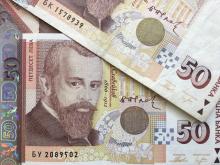Eurostat
30% of the Households in Bulgaria Face Difficulties in Paying Utility Bills on Time
Improving the living conditions of its people and fighting poverty and social exclusion is a central part of European Union policies. Nevertheless, there are still households in the EU that have difficulties in making ends meet. In 2018, almost 7% of households had been unable to pay utility bills (heating, electricity, gas, water, etc.) on time, due to financial difficulties.
Eurostat: Since 2007 Rents up by 21%, House Prices by 19%
House prices and rents in the EU have followed very different paths since the financial crisis. While rents increased steadily throughout the period up to the third quarter of 2019, house prices have fluctuated significantly, Eurostat data showed.
Bulgarians Don't Eat-Out Much
In 2018, households in the European Union (EU) spent over €600 bn (equivalent to 3.8% of EU GDP) on 'catering services', i.e. restaurants, cafés, canteens, and the like, Eurostat reported.
Household expenditure on catering services represents 7.0% of their total consumption expenditure.
- Read more about Bulgarians Don't Eat-Out Much
- Log in to post comments
Romania lagging behind in EU in terms of households expenditure on eating-out
In 2018, Romania's households allocated only 1.9 percent of their total consumption expenditure for catering services, i.e. restaurants, cafes, bars and tea houses, the lowest percentage among the member states and three times less than the European Union average of 7 percent, according to the European Statistical Office (Eurostat) data.
Where our Typical Christmas Products Come from?
Do you know which EU Member States supply the EU's Christmas goodies?
Take a look at Eurostat's festive-themed infographic below, which illustrates the top intra-EU exporters of a selection of Christmas goods below:
Infographic Source: Eurostat
- Read more about Where our Typical Christmas Products Come from?
- Log in to post comments
Record: Bulgarians Abroad Have Sent over 1 Billion in the Country
Bulgarians abroad broke the record by the amount of money they sent to their homeland.
For the first time in history, just over a billion and 100 million euros is the money which migrants transferred to Bulgarian accounts, NOVA reported.
According to statistics, about 80% of the money comes from EU countries. The exact amount is EUR 833 million.
Albanians prefer Italy and Greece
Greece was the second most popular destination behind Italy for Albanian migrants in search of jobs and a better standard of living between 2008 and 2018, according to Eurostat, the statistical office of the European Union.
During that 10-year period, 622,000 Albanian citizens received residence permits from EU countries, Eurostat said.
- Read more about Albanians prefer Italy and Greece
- Log in to post comments
About 28.7% of EU Residents Are at Risk of Poverty or Social Exclusion
In 2018, about 28.7% of the EU population with a disability (aged 16 or over) was at risk of poverty or social exclusion, compared with 19.2% of those with no limitation, Eurostat data show.
There are significant differences across Member States, yet in all of them people with a disability are more exposed to the risk of poverty and social exclusion than those with none.
Eurostat: Bulgarians are Most at Risk of Poverty in the EU
We are followed by Romania and Greece.
Bulgarians are most at risk of poverty among all EU Member States, Eurostat data show. According to them, about 2.3 million people in Bulgaria live with income around the poverty line, which is BGN 350.
Every Third Bulgarian Lives with Less than BGN 350 a Month
Every third Bulgarian lives at risk of poverty or social exclusion, Eurostat data for poverty level in the Member States in 2018 showed. About 2.3 million people in the country live below the poverty line, which in Bulgaria is officially BGN 350 per month.









